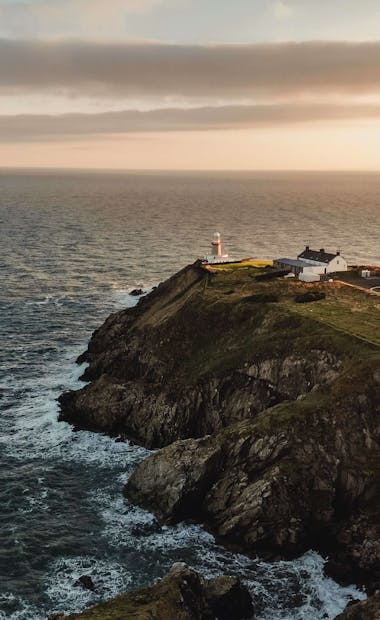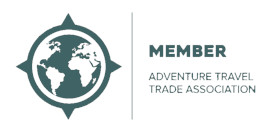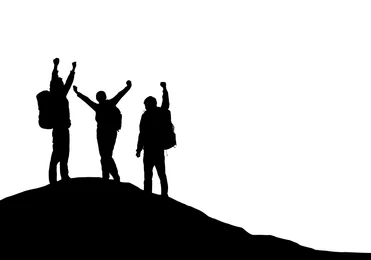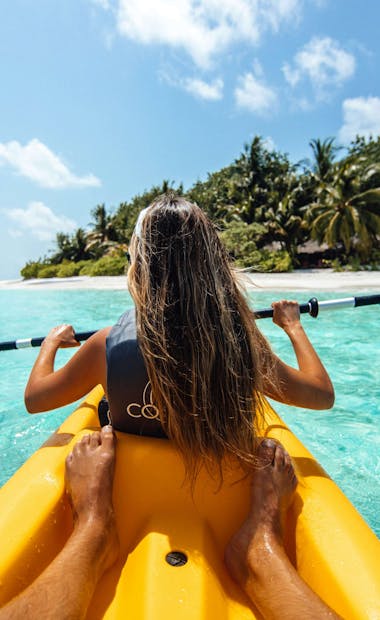
Ireland Tours
Traditional music, dramatic coastlines, vibrant towns and lashings of Irish charm
Popular tours
- Save16%
 View Tour
View TourJourneys: Iconic Ireland - 9 Days
- Dublin to Dublin
- Age group: 12 - 100
- Max group size: 16
Was:£2,899From£2,440 - Save7%
 View Tour
View TourClassic Ireland - 10 Days
- Dublin to Dublin
- Age group: 12 - 99
- Max group size: 15
Was:£4,110From£3,808 - Save7%
 View Tour
View TourBest of the Emerald Isle - 8 Days
- Dublin to Dublin
- Age group: 12 - 99
- Max group size: 15
Was:£3,145From£2,914 - Save7%
 View Tour
View TourEnchanting Irish Odyssey Cities to Cliffs - 7 Days
- Dublin to Dublin
- Age group: 0 - 100
- Max group size: 65
Was:£1,705From£1,580 - Save7%
 View Tour
View TourHighlights of Ireland & Islands - 7 Days
- Dublin to Dublin
- Age group: 12 - 99
- Max group size: 12
Was:£2,820From£2,613 - Save7%
 View Tour
View TourSuper South Ireland - 5 Days
- Dublin to Dublin
- Age group: 12 - 99
- Max group size: 15
Was:£2,080From£1,927
Ireland Tours
Discover the enchanting beauty and rich heritage of Ireland with our unforgettable Ireland tours and holidays. From the breathtaking landscapes to the vibrant cities, Ireland offers a captivating blend of natural wonders, historic sites, and warm Irish hospitality. Let us guide you through the top attractions and compelling reasons why Ireland should be at the top of your travel bucket list.
Immerse yourself in the spellbinding landscapes of Ireland, where rolling green hills, rugged cliffs, and picturesque coastlines create a postcard-perfect backdrop. The iconic Cliffs of Moher, standing tall against the crashing waves of the Atlantic Ocean, will leave you in awe of their majestic beauty. Explore the otherworldly landscapes of the Giant's Causeway, with its intriguing hexagonal basalt columns, formed by ancient volcanic activity.
Journey through the mystical Ring of Kerry, a scenic route that showcases Ireland's natural splendor. As you wind through charming villages and past shimmering lakes, be captivated by the stunning vistas of mountains and seascapes that have inspired countless tales and legends. The serene beauty of the Connemara region, with its shimmering lakes and heather-covered mountains, will transport you to a world of tranquility.
Experience the vibrant spirit of Ireland's cities. Dublin, the dynamic capital, seamlessly blends its rich history with a thriving contemporary culture. Stroll through the cobbled streets of Temple Bar, immersing yourself in the lively atmosphere of traditional pubs, live music, and the warmth of the locals. Explore the iconic Trinity College, home to the ancient Book of Kells, or lose yourself in the literary history of Dublin at the Writers Museum.
Discover the fascinating history and heritage of Ireland at its ancient castles and medieval ruins. Unearth the mysteries of Blarney Castle as you climb the steps to kiss the famous Blarney Stone, said to bestow the gift of eloquence. Explore the hauntingly beautiful ruins of Dunluce Castle, perched precariously on a cliff edge. Feel the echoes of history as you step back in time at the ancient archaeological site of Newgrange, older than the pyramids of Egypt.
But Ireland is not just about its remarkable landscapes and historical treasures; it's also a place where you can truly connect with its people and their cherished traditions. Engage in lively conversations with friendly locals in charming villages, where Irish folklore and storytelling still thrive. Experience the warmth of Irish hospitality as you join in a traditional music session, tapping your feet to the rhythm of lively jigs and reels.
Indulge in Ireland's culinary delights, from hearty traditional Irish stew to freshly caught seafood. Savor a pint of Guinness in a cozy pub or sample the finest whiskeys on a distillery tour, discovering the secrets behind Ireland's beloved spirits.
With its captivating landscapes, vibrant cities, rich history, and welcoming atmosphere, Ireland offers an unrivaled experience for every traveler. Let our Ireland tours and holidays take you on an unforgettable journey through this enchanting land. From the emerald countryside to the lively streets of Dublin, Ireland beckons with its timeless allure and promises memories to last a lifetime. Book your Ireland adventure today and embark on a remarkable journey into the heart and soul of this extraordinary country.
When is the best time to visit Ireland?
The best time to visit Ireland depends on your interests and what you want to experience during your trip. The peak tourist season in Ireland is during the summer months of June, July, and August, when the weather is generally mild and the days are long. However, this is also when prices are highest, and crowds can be quite significant.
If you're looking to save money and avoid crowds, the shoulder seasons of April to May and September to October can be an excellent time to visit. During these months, the weather is still mild, and there are fewer tourists, which can make it easier to explore the country's attractions.
If you're interested in outdoor activities like hiking and cycling, the best time to visit Ireland is from April to October when the weather is suitable for these activities. However, keep in mind that rain is always a possibility in Ireland, so it's essential to pack appropriate clothing and gear regardless of the season.
In summary, the best time to visit Ireland is during the shoulder seasons of April to May and September to October, when prices are lower, crowds are fewer, and the weather is still mild.
What are the top attractions?
There are many incredible sights and attractions to see in Ireland, but here are ten of the most popular:
Cliffs of Moher - a stunning natural wonder and one of Ireland's most iconic landmarks
Ring of Kerry - a scenic drive through the countryside of County Kerry, with breathtaking views of the coast and mountains
Guinness Storehouse - a must-visit for beer lovers, offering tours and tastings at the home of Ireland's famous Guinness beer
Blarney Castle - home to the famous Blarney Stone, said to give those who kiss it the gift of eloquence
Killarney National Park - a beautiful wilderness area with hiking trails, lakes, waterfalls, and abundant wildlife
Trinity College and the Book of Kells - a historic university and library that houses one of Ireland's most prized treasures, a beautifully illuminated medieval manuscript
The Burren - a unique landscape of limestone formations and rare wildflowers, located in County Clare
Giant's Causeway - a natural wonder of 40,000 interlocking basalt columns on the Northern Ireland coast
Dublin Castle - a historic fortress and palace in the heart of Dublin, with guided tours available
Kylemore Abbey - a picturesque Benedictine monastery and estate set in the stunning Connemara region of County Galway
These are just a few of the amazing attractions that Ireland has to offer, and there are many more to discover as well.
The Wicklow Way information
The Wicklow Way is a long-distance hiking trail that runs through the Wicklow Mountains in Ireland. The trail is approximately 130 kilometers (80 miles) long, and takes hikers through some of the most scenic and rugged landscapes in Ireland.
The Wicklow Way starts in the south of Dublin and ends in Clonegal, County Carlow. The trail is typically completed in 5-7 days, depending on the hiker's pace and level of fitness.
Along the way, hikers can enjoy stunning views of the Wicklow Mountains, including rolling hills, forests, lakes, and waterfalls. The trail also passes through picturesque villages and historic sites, such as Glendalough, a 6th-century monastic settlement with impressive ruins and a beautiful lake.
The Wicklow Way is well-marked and maintained, with a variety of accommodation options available along the trail, including campsites, hostels, and bed and breakfasts. Hikers should be prepared for variable weather conditions and challenging terrain, and should carry appropriate gear and provisions.
The Wicklow Way is a popular destination for hikers and nature lovers, and offers a unique and rewarding way to experience the beauty and wilderness of Ireland's mountain landscapes.
Will I need a visa to travel to Ireland?
Whether or not you need a visa to travel to Ireland depends on your nationality and the purpose and length of your visit.
If you are a citizen of the European Union (EU) or European Economic Area (EEA), you do not need a visa to enter Ireland. Citizens of certain other countries, including the United States, Canada, and Australia, do not need a visa for short-term visits to Ireland (less than 90 days) for tourism or business purposes.
However, if you are a citizen of a country that is not in the EU or EEA and you plan to stay in Ireland for more than 90 days, or if you plan to work, study, or join family members in Ireland, you will need to apply for a visa.
To check if you need a visa to travel to Ireland and to learn about the application process, you can visit the website of the Irish Naturalisation and Immigration Service (INIS) or contact the nearest Irish embassy or consulate in your country.
Visas are the responsibility of the traveller and you should check your Foreign Office or embassy for the latest information before travelling.
What is the local currency in Ireland, and can I use credit cards?
The local currency in Ireland is the Euro (€). It is widely accepted throughout the country, and you will have no trouble using Euros for your transactions.
Credit cards are widely accepted in most establishments in Ireland, including hotels, restaurants, shops, and tourist attractions. Visa and Mastercard are the most commonly accepted cards, followed by American Express and Discover, which may have more limited acceptance.
It is a good idea to carry some cash with you, especially for small purchases, markets, and establishments in rural areas that may not accept cards. ATMs (cash machines) are widely available in cities and towns, allowing you to withdraw Euros using your debit or credit card.
Before traveling to Ireland, it's a good practice to inform your bank or credit card company about your travel plans to ensure that your cards will work abroad without any issues. Additionally, be aware of any foreign transaction fees or currency conversion charges that may apply when using your credit card.
Overall, using credit cards in Ireland is convenient and widely accepted, but it's always a good idea to have some cash on hand for smaller or cash-only establishments.
Is Ireland safe?
Yes, Ireland is generally a safe destination for travelers. The country has a low crime rate, and violent crime is rare. However, like any destination, visitors should take common-sense precautions to ensure their safety and security.
Here are some tips for staying safe in Ireland:
Be aware of your surroundings, especially when walking alone or at night.
Keep your valuables secure and out of sight, and be careful with your wallet or purse in crowded areas.
Use reputable taxis or public transportation, and avoid unlicensed or unofficial taxis.
If you plan to drive, be aware of the country's traffic laws and road conditions, and drive on the left side of the road.
Pay attention to weather conditions, especially if you plan to engage in outdoor activities like hiking or cycling.
Be cautious when consuming alcohol, and never leave your drink unattended in a bar or nightclub.
Overall, with a bit of common sense and awareness, visitors to Ireland should have a safe and enjoyable trip.
For UK citizens: https://www.gov.uk/foreign-travel-advice
For Irish citizens: https://www.dfa.ie/travel/travel-advice/
For US citizens: https://travel.state.gov/content/travel.html
For Canadian citizens: https://travel.gc.ca/
For Australian citizens: https://www.smartraveller.gov.au/
For New Zealand citizens: https://www.safetravel.govt.nz/
Will I require any vaccinations to travel to Ireland?
There are no specific vaccinations required for travellers visiting Ireland. The country does not pose any significant health risks, and routine vaccinations should be up to date as per your country's guidelines.
However, it is always a good idea to consult with a healthcare professional, such as a travel medicine specialist or your primary care physician, before traveling to Ireland or any destination. They can provide you with the most up-to-date information and recommendations based on your individual health status and any specific concerns.
It is also advisable to check the website of your country's health department or the Centres for Disease Control and Prevention (CDC) for any updated information on vaccinations or health advisories related to travel to Ireland.
In addition to vaccinations, it is recommended to have travel health insurance that covers any medical expenses during your trip, as well as emergency medical evacuation if needed. This will provide you with peace of mind and protection in case of unforeseen health issues.
Remember to practice good hygiene habits during your trip, such as washing your hands regularly, using hand sanitisers, and following any local health guidelines to stay healthy and enjoy your visit to Ireland.
Is Ireland a good family holiday destination?
Absolutely! Ireland is a fantastic destination for a family holiday, offering a wide range of activities and attractions that will delight both children and adults. Here's why Ireland is a great choice for a family vacation:
Welcoming Culture: Irish people are known for their warm hospitality and friendliness, making families feel welcome and at ease. You'll find a family-friendly atmosphere throughout the country, from accommodations to attractions and restaurants.
Outdoor Adventures: Ireland's natural landscapes are a playground for outdoor enthusiasts. From exploring scenic hiking trails and biking routes to enjoying water activities such as kayaking and surfing, there are endless opportunities for families to immerse themselves in nature and have fun together.
Castles and History: Ireland is dotted with historic castles and ruins that capture the imagination of both children and adults. Kids will love exploring the ancient halls, climbing spiral staircases, and learning about the captivating stories behind these fascinating structures.
Fairytale-like Landscapes: Ireland's landscapes are like something out of a storybook, with rolling green hills, rugged coastlines, and picturesque lakes. Taking your family on a scenic drive through the countryside or visiting iconic sites like the Cliffs of Moher or the Ring of Kerry will create unforgettable memories.
Family-Friendly Attractions: Ireland offers a wide range of family-friendly attractions and activities. From interactive museums and educational exhibitions to animal encounters at wildlife parks and farm visits, there are plenty of options to keep children entertained and engaged.
Traditional Music and Festivals: Ireland's lively music scene and vibrant festivals provide a lively and cultural experience for families. Enjoy live traditional music sessions in cozy pubs or join in the festivities of local festivals, where you can immerse yourself in Irish culture and create lasting memories.
Mythology and Folklore: Ireland is steeped in mythology and folklore, with countless tales of fairies, leprechauns, and legendary creatures. Kids will be fascinated by the stories and legends, and you can even take guided tours that bring these tales to life.
Safe and Family-Oriented Environment: Ireland is known for its safety and family-friendly environment. You can explore cities, towns, and attractions with peace of mind, knowing that Ireland prioritizes the well-being and security of its visitors.
Educational Opportunities: Ireland offers numerous educational opportunities for children to learn about history, culture, and the natural environment. Museums, heritage centers, and interactive exhibits provide engaging learning experiences for the whole family.
Accessibility: Ireland is a relatively small country, making it easy to navigate and explore. Distances between attractions and cities are manageable, and public transportation options are available. This accessibility makes it convenient for families to plan and enjoy their vacation without long travel times.
With its blend of stunning landscapes, rich history, warm hospitality, and family-friendly attractions, Ireland is an ideal destination for a memorable family holiday. Whether you're exploring ancient castles, enjoying outdoor adventures, or discovering Irish culture, there's something for everyone to enjoy in the Emerald Isle.
Is Ireland a good destination for solo travellers?
Absolutely! Ireland is a wonderful destination for solo travellers, offering a unique and enriching experience. Here are some reasons why Ireland is a great choice for solo adventurers:
Friendly Locals: Irish people are known for their warmth and friendliness, which makes it easy for solo travellers to feel welcome and at ease. You'll find locals who are happy to engage in conversations, offer helpful advice, and make you feel like a part of the community.
Safe Environment: Ireland is considered a safe country for travellers, including solo travellers. The crime rates are relatively low, and the country has a well-developed infrastructure that ensures a safe and comfortable experience. Of course, it's always important to take basic safety precautions as you would when traveling alone anywhere.
Cultural Experiences: Ireland's rich cultural heritage provides solo travellers with ample opportunities to immerse themselves in the local traditions. From live traditional music sessions in cozy pubs to joining in local festivals and events, you can embrace the Irish culture and create meaningful connections with fellow travellers and locals.
Breathtaking Landscapes: Ireland's stunning landscapes are a delight for solo travellers. From the dramatic cliffs of the Atlantic coast to the picturesque countryside dotted with rolling green hills and ancient castles, there are countless places to explore and enjoy solitude amidst nature's beauty.
Vibrant Cities and Towns: Ireland's cities and towns offer a vibrant and welcoming atmosphere for solo travellers. Cities like Dublin, Galway, and Cork provide a blend of history, culture, lively nightlife, and a thriving arts scene. You can wander through charming streets, visit museums, enjoy delicious cuisine, and take part in various activities that suit your interests.
Outdoor Adventures: For those seeking outdoor adventures, Ireland has much to offer. You can embark on scenic hikes along the Wild Atlantic Way, explore national parks, go cycling through the countryside, or try your hand at water sports along the stunning coastlines. These activities provide opportunities to connect with nature and meet fellow adventurers along the way.
Ease of Navigation: Ireland is a relatively small country, making it easy to navigate as a solo traveler. Public transportation, such as buses and trains, connects major cities and towns, allowing you to explore different regions at your own pace. Additionally, organised tours and day trips are available, providing opportunities to join like-minded travellers and explore popular attractions.
Historical and Cultural Sites: Ireland is steeped in history and boasts numerous ancient sites, castles, and ruins that solo travellers can explore. From the iconic Rock of Cashel to the mysterious ancient passage tomb at Newgrange, you can delve into the country's rich history and immerse yourself in the stories of the past.
Whether you prefer solitude in nature, engaging with locals, or joining fellow travellers on new adventures, Ireland offers a diverse range of experiences that cater to solo travellers. So pack your bags, embrace the spirit of adventure, and embark on a solo journey through the enchanting landscapes and welcoming communities of Ireland.
What is the food like in Ireland?
The food in Ireland is a delightful reflection of the country's rich culinary traditions, with a focus on fresh, local ingredients and hearty flavours. While Irish cuisine has evolved over the years, it still retains its traditional roots and offers a diverse range of dishes to tantalise your taste buds. Here's a glimpse into the food culture of Ireland:
Irish Stews and Soups: A quintessential dish of Ireland, Irish stew is a comforting and hearty combination of tender meat (usually lamb), root vegetables such as potatoes, carrots, and onions, all simmered together in a flavoruful broth. Another popular soup is the traditional Irish potato and leek soup, which is creamy and soul-warming.
Seafood: With its extensive coastline, Ireland is blessed with an abundance of fresh seafood. You can relish delicious seafood dishes such as smoked salmon, mussels, oysters, and Dublin Bay prawns (langoustines). Don't miss out on trying traditional fish and chips, a beloved staple of Irish pub cuisine.
Soda Bread: Ireland is famous for its soda bread, a quick bread made with baking soda instead of yeast. This traditional bread has a dense texture and a slightly tangy flavour. It's often served with butter or as an accompaniment to stews and soups.
Boxty: Boxty is a traditional Irish potato pancake that can be enjoyed in various forms. It's made from grated potatoes mixed with flour, buttermilk, and sometimes eggs. Boxty can be fried, baked, or boiled and is often served with savoury fillings like bacon, cheese, or vegetables.
Traditional Irish Breakfast: Start your day with a hearty Irish breakfast, known as the "full Irish." It typically includes fried eggs, bacon, sausages, black and white pudding (a type of sausage), grilled tomatoes, mushrooms, and toast. It's a substantial meal that will keep you energised for your adventures.
Traditional Pies: Ireland has a long-standing tradition of savoury pies, such as steak and Guinness pie, lamb and vegetable pie, or chicken and mushroom pie. These pies feature a rich, flavourful filling encased in a buttery pastry crust.
Irish Cheeses: Ireland has a growing reputation for its exceptional cheeses. From mild and creamy cheddar to tangy and crumbly Cashel Blue, there's a wide variety to explore. Sample artisanal cheeses, often made using traditional methods and local ingredients.
Irish Whiskey and Beer: Ireland is renowned for its whiskey and beer production. Whether you prefer a smooth Irish whiskey served neat or a pint of stout like Guinness or Murphy's, you'll find plenty of opportunities to indulge in Ireland's liquid treasures.
Modern Irish Cuisine: In recent years, Ireland has experienced a culinary renaissance, with a focus on modern interpretations of traditional dishes. Creative chefs are putting a contemporary twist on classic recipes, incorporating locally sourced ingredients and innovative techniques.
When dining out in Ireland, you'll find a range of options from cozy country pubs serving traditional fare to fine dining establishments showcasing the best of modern Irish cuisine. And, of course, don't forget to engage with the friendly locals who can provide recommendations for hidden food gems in their area.
So, prepare to savour the flavours of Ireland, where wholesome ingredients, time-honoured recipes, and a warm Irish welcome combine to create a memorable culinary experience.
Can I drink the tap water in Ireland?
Yes, you can drink tap water in Ireland. The tap water in Ireland is generally safe, clean, and of high quality. It undergoes rigorous testing and treatment processes to ensure its safety for consumption. The water supply in Ireland is well-regulated and monitored by the Environmental Protection Agency (EPA) to meet strict health standards.
Drinking tap water is not only safe but also an environmentally friendly choice, as it helps reduce plastic waste from bottled water. You can carry a reusable water bottle and refill it from taps wherever you go, whether it's in cities, towns, or rural areas.
If you have any concerns or prefer the taste of filtered water, you can also find bottled water available for purchase in stores and supermarkets throughout Ireland. However, it's important to note that tap water is readily available and is the preferred choice for most locals and visitors.
So, feel free to enjoy the convenience and quality of tap water during your travels in Ireland. Remember to stay hydrated, especially during outdoor activities and explorations, as you immerse yourself in the beauty and wonders of the Emerald Isle.
Is Ireland a safe destination?
Yes, Ireland is generally considered a safe destination for travelers. The country has a low crime rate, and visitors are unlikely to encounter any major safety concerns. However, it's always important to exercise basic precautions and be aware of your surroundings, just as you would in any other destination.
Here are some tips to ensure a safe and enjoyable experience in Ireland:
Personal Safety: Take normal precautions to protect your personal belongings, such as keeping an eye on your belongings in crowded areas, using hotel safes for valuables, and being cautious of pickpockets in busy tourist spots.
Transportation Safety: Follow safety guidelines when using public transportation, including buses, trains, and taxis. Be mindful of your personal belongings and use licensed taxis or reputable transportation services.
Road Safety: If you plan on driving in Ireland, familiarize yourself with the local traffic laws and road signs. Be aware that traffic moves on the left-hand side of the road, and exercise caution, particularly on narrow and winding rural roads.
Natural Hazards: Ireland's natural landscapes, while breathtaking, can have their own hazards. Pay attention to safety signage and warnings at coastal areas, cliffs, and hiking trails. Be cautious of changing weather conditions and follow any guidance from local authorities.
Emergency Services: Save the emergency numbers for Ireland (including 112 and 999) on your phone and know how to contact local authorities or emergency services if needed.
Travel Insurance: It is recommended to have travel insurance that covers medical emergencies, trip cancellation, and personal belongings. Ensure your insurance policy provides adequate coverage for your needs during your stay in Ireland.
Weather Conditions: Ireland's weather can be changeable, so it's advisable to be prepared for different weather conditions, particularly if you plan on engaging in outdoor activities. Bring appropriate clothing and equipment to stay comfortable and safe.
As with any travel destination, using common sense, being aware of your surroundings, and following local guidelines will help ensure a safe and enjoyable experience in Ireland. The friendly and welcoming nature of the Irish people adds to the overall sense of safety and comfort for visitors.
For the most up-to-date information on safety and travel advisories, it is recommended to check the official travel advisories provided by your country's government or consult with your local embassy or consulate before your trip to Ireland.
How does the rooming work on tours?
Small group tours in Ireland typically involve a set itinerary where you travel with a group of fellow travellers and a tour leader/guide. Accommodation arrangements vary depending on the specific tour you choose. Here are some common aspects of rooming arrangements on small group tours:
Shared Rooms: In order to promote camaraderie and facilitate interaction among group members, most tours arrange shared accommodation. This means you will be paired with another member of the same gender from the group to share a room. Roommates may sometimes change periodically throughout the tour.
Single Supplement: If you prefer to have your own room and privacy, you may have the option to pay a single supplement fee. This additional fee allows you to have your own room for the duration of the tour. However, please note that single supplements can vary in cost and availability.
Roommate Matching: Tour operators usually offer roommate matching services, where they try to pair you with a suitable roommate based on your preferences, such as age range. This can help ensure compatibility and a more enjoyable experience for all participants.
Rooming Preferences: When booking your small group tour, it's important to communicate your rooming preferences to the tour operator. If you have specific requirements or preferences, such as sharing with a friend or a specific roommate request, it's advisable to inform the tour operator during the booking process.
It's important to carefully read the tour details and inclusions provided by the tour operator to understand their specific rooming policies. If having your own room is a priority, make sure to inquire about the availability of single supplements and any associated costs before booking your tour.
Keep in mind that while sharing a room with a fellow traveller can be a great way to meet new people and build connections, having your own room provides more privacy and flexibility. Consider your preferences and the dynamics of the tour when deciding whether to opt for a shared room or pay for a single supplement.
Remember to communicate your needs and preferences clearly with the tour operator during the booking process to ensure a comfortable and enjoyable accommodation experience on your small group tour in Ireland.
Are there any cultural norms in Ireland I should follow?
Yes, Ireland has its own set of cultural norms and customs that visitors are encouraged to respect and follow. Embracing these cultural norms will not only help you have a more authentic and enjoyable experience but also show respect for the local traditions and way of life. Here are some cultural norms in Ireland:
Friendliness and Hospitality: Irish people are known for their friendliness and warm hospitality. It is customary to greet people with a smile and engage in friendly conversations. Don't hesitate to strike up a conversation with locals, as they are often eager to share stories and recommendations.
Politeness and Courtesy: Politeness is highly valued in Irish culture. Saying "please" and "thank you" is considered important, whether you're interacting with locals, service staff, or fellow travelers. Common courtesies such as holding doors open for others and offering a helping hand are appreciated.
Punctuality: Being punctual is appreciated in Ireland. If you have appointments or scheduled activities, it's good practice to arrive on time. Being late without prior notice may be seen as disrespectful, so it's advisable to plan your time accordingly.
Respect for Personal Space: While Irish people are friendly, it's important to respect personal space. Give others adequate physical distance when engaging in conversations, and avoid unnecessary physical contact unless invited or in a social setting.
Pub Culture: Pubs are an integral part of Irish culture and social life. When visiting a pub, it's customary to order drinks at the bar and wait for your turn to be served. Engage in friendly conversations with others, enjoy live music sessions, and respect the pub's ambiance and rules.
Table Manners: When dining out, it's considered polite to wait for everyone to be served before starting to eat. Keep your elbows off the table, and use utensils appropriately. Tipping is appreciated in restaurants, typically around 10-15% of the bill, although it is not obligatory.
Environmental Respect: Ireland's natural beauty is cherished by its people. Show respect for the environment by disposing of your waste responsibly, using designated bins for recycling, and following any guidelines for nature conservation, especially when visiting national parks or protected areas.
Cultural and Historical Sites: When visiting cultural or historical sites, such as churches, castles, or ancient monuments, remember to dress appropriately and observe any rules or guidelines regarding photography, silence, or restricted areas. Respect the sanctity and significance of these places.
By observing these cultural norms, you'll have the opportunity to connect with locals and experience the genuine warmth of Irish hospitality. Remember, embracing cultural differences is part of the joy of travel, and it's always appreciated to show respect for the local customs and traditions.
What should I pack for a trip to Ireland?
When packing for a trip to Ireland, it's important to consider the country's changeable weather and the activities you plan to engage in. Here's a list of essential items to pack for your trip:
Clothing:
- Layered clothing: Ireland's weather can be unpredictable, so pack lightweight layers that you can add or remove as needed.
- Waterproof jacket or raincoat: A waterproof jacket with a hood will come in handy to protect you from rain showers.
- Sweaters or fleeces: Bring warm and comfortable sweaters or fleeces for cooler days or evenings.
- Comfortable walking shoes: Pack sturdy and waterproof footwear for exploring the countryside, cities, and hiking trails.
- Waterproof pants or trousers: Consider packing waterproof pants or trousers for outdoor activities in wet conditions.
- Hat, gloves, and scarf: These items will help keep you warm during cooler weather or when exploring windy coastal areas.
Travel Essentials:
- Adapters and chargers: Remember to bring adapters to charge your electronic devices, as Ireland uses a different electrical socket type (Type G) than some other countries.
- Travel documents: Carry your passport, travel insurance documents, and any necessary visas.
- Money: Bring some cash in the local currency (Euro) for small purchases, as well as credit/debit cards for convenience.
- Guidebook or maps: Consider bringing a guidebook or maps to help navigate your way and learn more about the destinations you'll be visiting.
- Portable charger: Keep your devices charged on the go with a portable charger.
- Travel-sized toiletries: Pack travel-sized toiletries, including shampoo, conditioner, soap, and any other personal items you may need.
Outdoor Gear:
- Daypack: A small backpack will be useful for carrying essentials during day trips or hikes.
- Binoculars: If you plan on wildlife spotting or enjoying scenic views, binoculars can enhance your experience.
- Sunscreen and sunglasses: Even on cloudy days, UV rays can be present, so pack sunscreen and sunglasses for sun protection.
- Insect repellent: Depending on the season and location, you may encounter insects, so bring insect repellent to stay protected.
Miscellaneous:
- Travel umbrella: A compact travel umbrella will be handy for unexpected rain showers.
- Medications and first aid kit: Bring any necessary prescription medications, as well as a basic first aid kit for minor injuries or ailments.
- Reusable water bottle: Stay hydrated by carrying a reusable water bottle that you can fill up from taps.
- Travel locks: Consider bringing travel locks to secure your belongings in accommodations or luggage.
Remember to check the weather forecast for the specific time of your visit and adjust your packing list accordingly. Additionally, consider the activities you plan to do and pack appropriate gear, such as swimwear if you intend to visit coastal areas or hiking boots for outdoor adventures.
Packing efficiently and considering the variable weather conditions will help ensure you're prepared and comfortable throughout your trip to Ireland.
Book With Confidence
Monthly Payments
Spread the costs with no interest or additional fees
Best Price Guarantee
We won't be beaten on price. If you find this adventure at a lower price please get in touch!
Reserve now & pay later
Reserve your adventure today and pay later, free of charge
ATOL protected
Book with confidence
Hold your space today, for free
or book your trip with a deposit and then pay the rest in instalments.
Reserve your flights with us
Add flights to your booking and we'll take care of the rest. You'll get 24/7 support from our team & ATOL protection.
Speak to our experts
Call or email our expert team to find out more and help with ideas and planning.









